
by John | Jan 4, 2019 | WriteMovies News
20 years promoting great global storytelling!
WriteMovies has now been helping writers succeed for two decades – and in our 20th anniversary year, we’ve got a lot of exciting changes on the way. WriteMovies 2019 is a new WriteMovies, campaigning for great, vital stories in 2019!
So what have we got going on in WriteMovies 2019? Take a look…
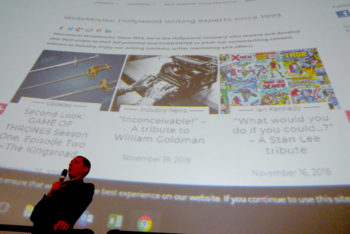 Potentially our last contest in the format you’re used to, our Winter 2019 Screenwriting Contest closes in just 9 days! With a $2500 Grand Prize, plus a year of free script development worth up to $3200 and guaranteed pitching to industry for the top three scripts, it’s not an opportunity to be missed. Enter your script before January 13th for a chance to win!
Potentially our last contest in the format you’re used to, our Winter 2019 Screenwriting Contest closes in just 9 days! With a $2500 Grand Prize, plus a year of free script development worth up to $3200 and guaranteed pitching to industry for the top three scripts, it’s not an opportunity to be missed. Enter your script before January 13th for a chance to win!- We’ll be making a lot of improvements and enhancements to our website, with new hosting and other changes to enhance it and our email systems.
- TalentScout International Management will also be getting a makeover, becoming a creatives’ agency run for and by creatives. TSIM will be a vital part of our work as we pitch our winners’ scripts to industry!
- As we continue to roll out WriteMovies Academy, our unique virtual film school, we’ll be launching weekly videos about screenwriting. These will give you a sneak peak at some of the Academy content – as well as providing invaluable help for creating your own projects!
- We’re relaunching our French services under auteur filmmaker Nicolas Bodereau. We’ve already received commissions for Nicolas to translate scripts from French to English, so if you’ve got any translation needed yourself, email auteur@writemovies.com!
WriteMovies 2019 looks to be better than ever before. A place for great global storytelling, we’re going to be expanding our and growing, championing the stories we believe in. Watch this space for more news coming soon – we’ve got a lot of exciting stuff coming up!
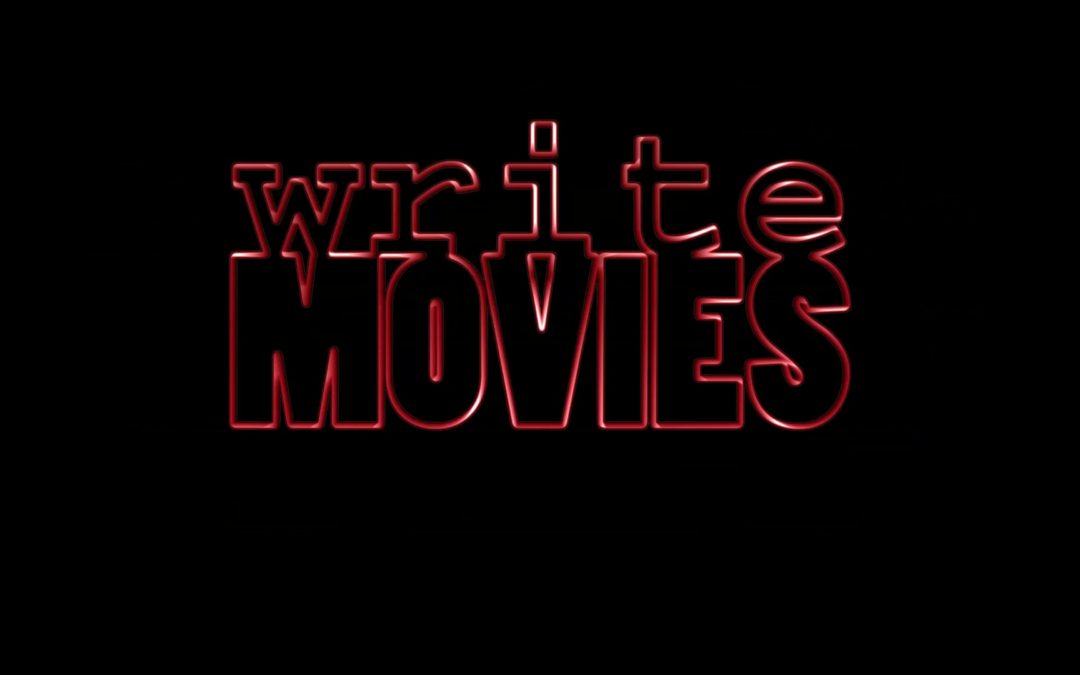
by John | Dec 31, 2018 | Our Winners, Updates, WMC
Today we look back at the winners of our Grand Prize from 2018 and reveal our full Wall of Fame 2018! If you’d like to see your name on next year’s Wall of Fame, enter our Winter 2019 Contest for a chance to come out on top – as well as the chance to win our Grand prize of $2500 in cash!
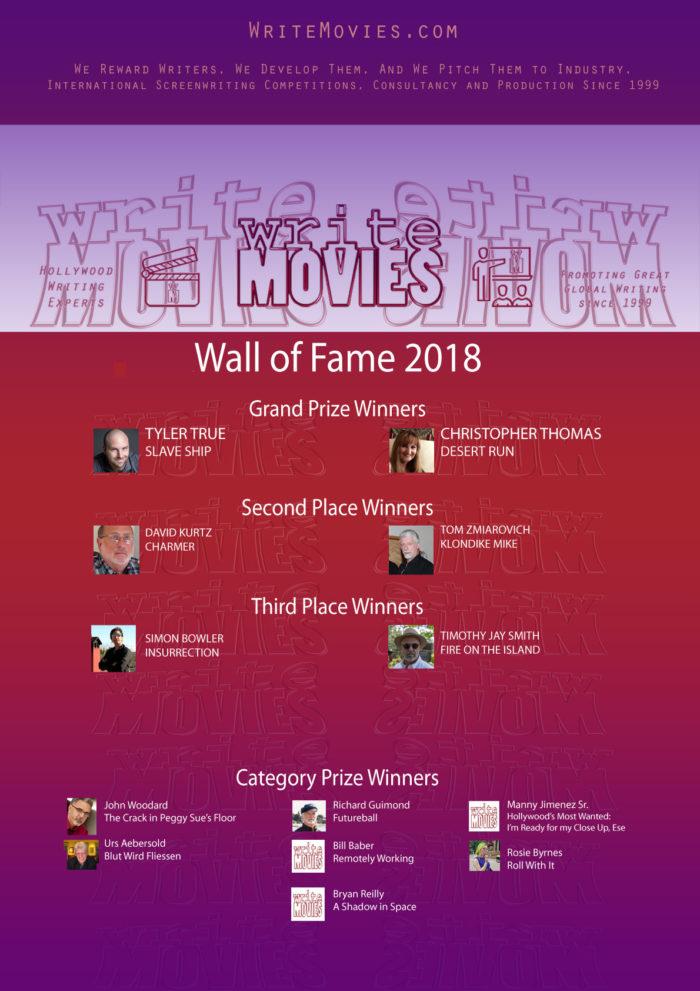
Here’s some more info on our Grand Prize winners from 2018. All of our winners received a year of free script development with us and we’re now working hard at polishing them to perfection!
- SLAVE SHIP by Tyler True: “A devout African man chooses to work on a slave ship in order to ensure the safe passage of other Africans sold into slavery.”
- DESERT RUN by Christopher Thomas: “A hard-bitten oil explorer and a desperate group of orphans led by two unorthodox nuns are forced into a hellish desert confrontation to escape the Nazis and help ensure an Allied victory.”
Wish you’d been featured on our Wall of Fame 2018? If you think you’ve got a script that will take you to the top, be sure to enter our Winter 2019 Screenwriting Contest! Closing on January 13th 2019, this might be the last time we run a major competition of this kind… And with an increased cash prize of $2500, this is an opportunity not to be missed!

by John | Dec 14, 2018 | Movie Reviews and TV Reviews, Writing Insights
Alfonso Cuarón’s latest film, ROMA, has been getting all kinds of acclaim, winning the Golden Lion at the Venice Film Festival and earning three Golden Globe nominations already. Guest author Cat Tebo takes a look at what we can learn from it about writing character driven stories…
A lot of new writers fall into the trap of prioritizing plot above all else, losing the characters and, consequently, the “heart” of their story. Ideally, a script should be a marriage between plot and character. The best way to go about this is by developing characters whose objectives and agency are so strong that they inform the plot, rather than characters being used as mere devices for the storyteller to force into the mold of how they think their story is “supposed”to be.
Alfonso Cuarón’s recent film, ROMA, is a perfect example of how a character-driven film should function, with characters so compelling and nuanced that there isn’t room for heavy, convoluted plot-lines or unrealistic story details. Instead, the characters are the story.
A big part of what makes rich characterization so important to story is that the strength of a story lies in the strength of its characters. Characters give stories humanity and, in doing so, a heart. Furthermore, the desires and objectives that drive characters to act are the same ones that should drive the story forward. In ROMA, everything that happens is a result of characters exercising agency and taking action in order to get what they want: it’s one of the most basic fundamentals of storytelling. Plot movement is all about getting characters from point A to point B; if there is no character arc, there is no story.
Fleshing out your characters is often a challenging task. In creating ROMA, Alfonso Cuarón was drawing inspiration from his own childhood, and familiarity no doubt makes for a greater sense of character. Even when writers are creating characters completely from scratch, the influence of memories and experience still plays a part—there is no such thing as objective fiction, and even the most original-seeming thoughts are a consolidation of some kind of previous knowledge.
Still, there are some important character elements to consider when figuring out who your characters are. Ask yourself what their weaknesses are, what their strengths are, how they cope with obstacles, what they need versus what they want, who they appear to be versus who they really are—for every question you ask, you shouldn’t hesitate to ask the inverse of it as well. Doing this ensures that you’re considering your characters from every possible angle and are covering every aspect of them you can.
Concept is usually what sells your story in the beginning, but characters are what make it stick. Likewise,you might be able to grab an audience’s attention with an interesting premise, but you won’t be able to hold it without intriguing characters.
Take a look at more writing insights from WriteMovies by clicking here!
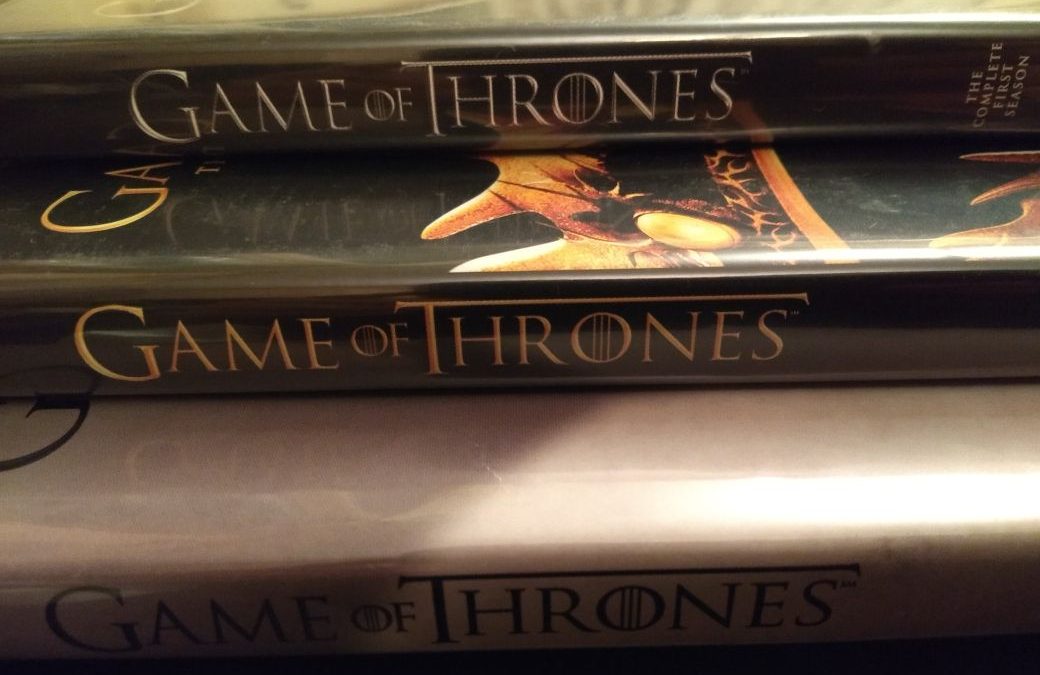
by John | Dec 7, 2018 | Movie Reviews and TV Reviews
In readiness for the eventual arrival of the final season, Ian Kennedy subjects himself to the whole thing again. Next up is the episode “Lord Snow”. Can anyone endure Ned’s honor, Stannis, the Red Wedding, and – worst of all – Arya’s unending journey from ‘annoying’ to ‘a different kind of annoying’, all over again? Or will the quality of the writing conquer all foes once more? Spoiler central here, if you hadn’t guessed… but in euphemisms that would make Tyrion blush, most of the time.
First of all, I do some math during the DVD homepage, and create an amusing ratio that demonstrates the series’ very impressive body count. But eventually I accept there is also an episode or two ready to watch.
Ned and the royal party arrive at balmy King’s Landing, and a series of excellent dialogues introduce us to the many powerful men who Ned must now navigate between as Hand of the King, as well as other enjoyable backstory intrigues.
“Someday you’ll sit on the throne, and the truth will be how you make it,” Cersei counsels Joffrey, among other dangerously wise advice. “Everyone who isn’t us, is an enemy,” she says, condoning his view that the Starks are enemies – though he doesn’t realise just how narrow her definition of “us” is, given his real parentage. “War is easier than daughters,” Ned concludes, reflecting the private view of men the world over – you’ll find way more stories by men about war, than about daughters. Sadly.
It’s enjoyable watching Daenerys earn our respect from nothing all over again – and her brother our hatred – as she starts to behave like the Khaleesi (tribal queen) she has become. It’s fun seeing Tyrion still the carefree rich playboy, before a world of cares catch up with him. Quoting his brother Ned, to cut short a pleasantry from Tyrion, Benjen says “nothing before the word ‘but’ matters” – neat. Dany becomes pregnant – something I’d almost totally forgotten about. Her burgeoning relationship with the savage, brutal tribal ruler Khal Drogo is still one of the most distinctive love stories I’ve ever seen, and is executed (sorry, no pun intended) in a remarkably short amount of screen time over this series.
Ned sets Arya a ‘dancing master’ to teach her artful swordfighting, and these are still among the most enjoyable training scenes I’ve seen anywhere, with some rich payoffs later. No coincidence that her tutor is from Braavos, and her transformation comes to fruition there later. Seeing her move with a sword, Ned is taken aback. Maybe he’s surprised that in Season One, she’s not yet really annoying,
Playback rating: 4/5
If you liked Ian’s take on “Lord Snow”, take a look at his thoughts on Episode One: “Winter is Coming” by clicking here or Episode Two: “The Kingsroad” by clicking here!

by John | Nov 26, 2018 | Ian Kennedy, Updates, Writing Insights
Feature films tend to get most of the glory among filmmakers, but that doesn’t mean we should ignore short film as a medium! In a new series of Insights articles, Ian Kennedy looks at the benefits of writing in this format.
There’s a reason there’s not just one but two categories for shorts at the Oscars: one for live-action and another for animated. They can be a great way of telling stories that a lot of filmmakers overlook – and that includes writers!
So why write a script for a short film? Why get one made? Well, there are actually quite a few good reasons…
- You’ve got an idea for story that doesn’t suit feature length – sometimes, even the best concept can’t be spun out into a longer screenplay! That doesn’t have to a negative, though. Use the opportunity to tell the story in short form instead.
- To improve your skills by writing under constraint. All writing is done under constraint of some kind – of format, style, etc. – but the additional restrictions of length and budget with short film can be a great chance to prove yourself. Learning to write under constraint can actually be a great way to improve your writing!
- As proof of concept for a feature film. Making feature films is an expensive business, so why not show how well your idea works by making a short based on the same idea?
- To get a production credit. Getting a script produced can take hard work, but if you’ve already got a track record in short films, it can look great on your writing CV and give producer’s faith in your abilities.
- As a personal project – just because you love your idea or are passionate about filmmaking! Be careful, though; if you’re making a short film for personal reasons, make sure that everyone on the production knows what your motives are.
Making a short film brings all sorts of challenges of its own. You’ll still need a unique concept, a well-structured story, and characters that audiences can fall in love with – but you’ve got to get it all into a much smaller space! That’s why it can be such a great test of your skills as a storyteller.
Whatever your reasons for making a short film, make sure you know exactly what they are before you begin, whether you want to use it to take the next step in your career or just because you’ve got a story you’re desperate to tell!
Take a look at our other Writing Insights articles here for great hints and tips on crafting your scripts!
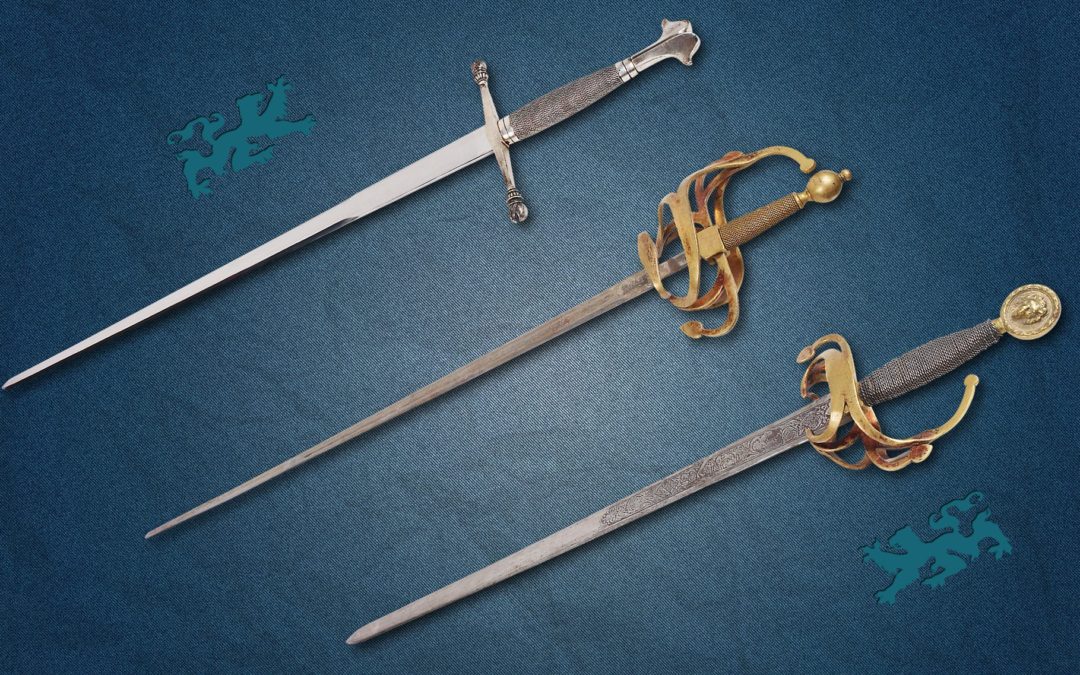
by John | Nov 23, 2018 | Updates
In readiness for the eventual arrival of the final season, Ian Kennedy subjects himself to the whole thing again. Can anyone endure Ned’s honor, Stannis, the Red Wedding, and – worst of all – Arya’s unending journey from ‘annoying’ to ‘a different kind of annoying’, all over again? Or will the quality of the writing conquer all foes once more? Spoiler central here, if you hadn’t guessed… but in euphemisms that would make Tyrion blush, most of the time.
“It’s all very interesting, there’s lots of intrigue, but nothing’s really happened yet.” That’s what I said to my parents about GoT season one, several episodes in. So after the opening introductions, will things will start to drag for me second time around as I watch The Kingsroad?
Just two scenes in, I’ve already got a lot less to say. Dany’s ordeal in a savage land and marriage continues, and Jorah establishes himself as a support for her, a Westeros knight once exiled by Ned Stark for handing poachers over to slavers. Tyrion’s fateful feud with Joffrey is established in a suitably hung-over, throwaway incident. Cersei reveals she lost her first-born child, which I’d totally forgotten about, and this does put a different spin on her surviving children who stand as heirs to the throne – because only this one was black-haired, like all previous Baratheons. Jon presents Arya with a blade which she names ‘Needle’, which I’d thought was Robb’s doing. All vaguely interesting to fans, I guess, and still perfectly well-written.
“I have no choice,” Ned says. “That’s what men always say when honor calls,” complains his wife Catelyn – how true of the world she’s lived in till now, but a dangerously naïve view to take to the human snake-pit that is King’s Landing. Dialogue in the series rarely fails to be insightful as well as character-building.
I could recount further details, it’s all well done, but I’d just be retelling.
Afterwards, for the first time I explore the DVD extras I’ve been ignoring all these years. As much as anything, I’m relieved to see how to spell the names properly – no, I haven’t read the books. Amid the character notes, I learn that Eddard (Ned) ‘was not always meant to be Lord of Winterfell, but when his father and elder brother were brutally executed by Mad King Aerys, he was thrust into a leadership role and did his duty’. Well, as they say, what goes around… and yes, this bit of backstory is yet another neat bit of forward planning in the series, from long before the start. You really do feel like everything is part of a plan, which yields some wonderfully satisfying storytelling throughout.
A bit lower down the list of Stark characters, I learn about the long-dead Rickard Stark – which, if I’d bothered to read first time around, would have helped seed a much later revelation which felt a bit disconnected on its own. Among the other deceased Stark backstories (deceased Starks are something to get used to, I guess) there’s more interesting stuff about Catelyn and Littlefinger, a reminder that Theon is really a Stark prisoner due to his father’s failed rebellion years ago, the origins of the Baratheons as a bastard offshoot of the Targaryens 300 years ago (this series loves bastards) and Littlefinger’s nickname.
The seeds of future carnage really have been sown since long before the start of this series – salute to the author, George RR Martin. There’s useful backstory on Jorah and others here (including several who don’t even feature in season one), and Westorosi locations information, but finally on the ‘Characters’ extras, I can’t resist quoting the wonderful description of Bronn as ‘A sellsword of considerable prowess, flexible morality, and reasonable rates’.
So maybe I should have been a bigger geek for this show all along – knowing all this stuff actually would have made the stories even more involving. Of course, geeks are an important part of the audience of a fantasy show like this, but its ability to reach far beyond that is what has marked GoT out. Thankfully you don’t need to know any of the backstory to enjoy what’s in front of you and feel deeply involved. Good work. But it’s midnight and midweek now as I delve ever deeper, so a guy’s gotta quit sometime…
Playback rating 4/5
If you liked reading Ian’s take on The Kingsroad, have a look at his thoughts on Episode One: Winter is Coming by clicking here!

by John | Nov 19, 2018 | Industry News, Updates
Last week, the world of screenwriting lost a legend. William Goldman, who won two Oscars for BUTCH CASSIDY AND THE SUNDANCE KID and ALL THE PRESIDENT’S MEN, died on 16 November at the age of 87. Now, WriteMovies takes a look at his legacy and what we can learn from it…
If there’s one thing that it’s easy to agree on, it’s that William Goldman was a phenomenal writer. His incredible wit made his films infinitely quotable, and no more so than THE PRINCESS BRIDE, which was based upon his own book of the same name. In fact, his talent with words was so great that one of the most memorable lines in the film is a single word: “Inconceivable!” (Although, immediately followed by the remark: “You keep using that word. I do not think it means what you think it means.”)
But wit alone isn’t enough to make a great story. Throughout his career, William Goldman showed a profound understanding of what stories are really about; THE PRINCESS BRIDE gives us everything we could possibly want from an adventure film, with romance, action, dashing heroes, evil villains, and daring feats of bravery. Yet it also defies our expectations enough to give us something new. It feels simultaneously like something very familiar and like something we’ve never seen before.
This is a kind of balance that it’s hard to pull off, but you can see it again in BUTCH CASSIDY AND THE SUNDANCE KID. When the script was first written, only one studio showed any interest, and even then they wanted it changed so that the main characters wouldn’t flee to South America. After all, the heroes in Westerns at the time didn’t flee – no matter what the real Butch and Sundance did! In the end, it survived in the script, as did plenty of other genre-defying elements, most notably the famous bicycle-riding scene set to the song “Raindrops Keep Fallin’ on My Head“.
William Goldman wasn’t just great with words, he was great with stories too. He understood structure, character, pacing, tone, and all the other things that keep an audience captivated – and then he strung them all together with wit and charm. In his own words:
“Screenplays are structure, and that’s all they are. The quality of writing—which is crucial in almost every other form of literature—is not what makes a screenplay work. Structure isn’t anything else but telling the story, starting as late as possible, starting each scene as late as possible. You don’t want to begin with “Once upon a time,” because the audience gets antsy.”
The stories that William Goldman gave us will probably last as long as film itself. His book “Adventures in the Screen Trade” is a fantastic way to learn from the master himself – and after all, what could be a better tribute to him than giving it a read?
The world of film lost another great last week with the death of comic book legend Stan Lee. You can read our tribute to him by clicking here.

 Potentially our last contest in the format you’re used to, our Winter 2019 Screenwriting Contest closes in just 9 days! With a $2500 Grand Prize, plus a year of free script development worth up to $3200 and guaranteed pitching to industry for the top three scripts, it’s not an opportunity to be missed. Enter your script before January 13th for a chance to win!
Potentially our last contest in the format you’re used to, our Winter 2019 Screenwriting Contest closes in just 9 days! With a $2500 Grand Prize, plus a year of free script development worth up to $3200 and guaranteed pitching to industry for the top three scripts, it’s not an opportunity to be missed. Enter your script before January 13th for a chance to win!







